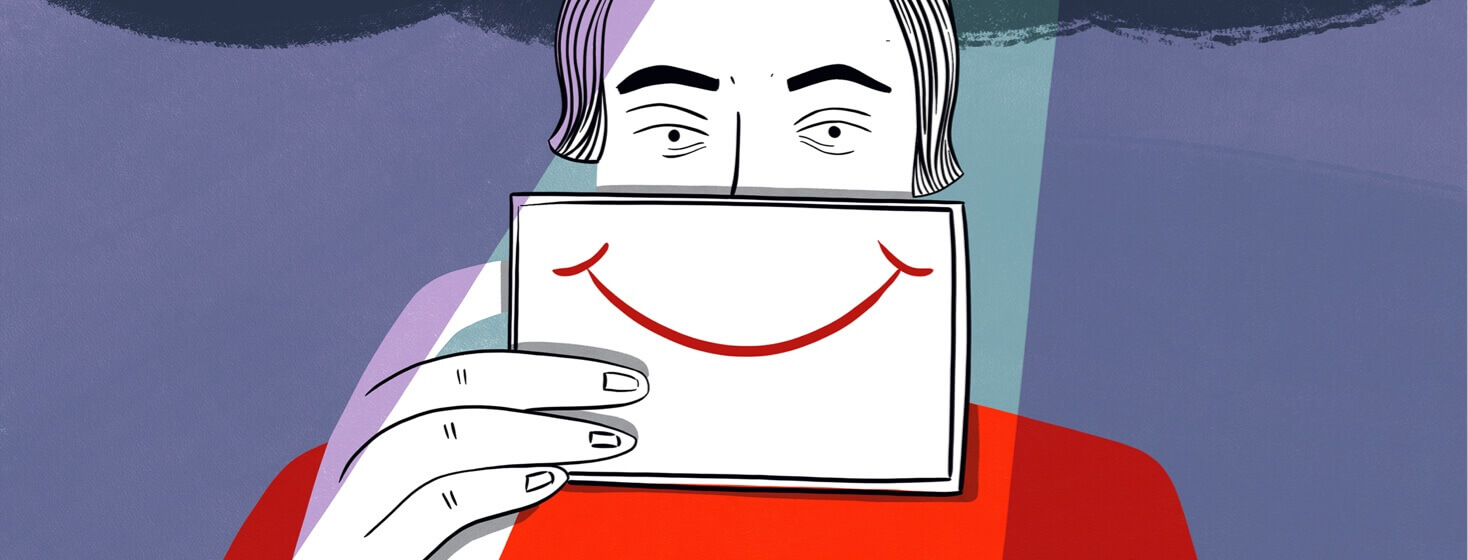Putting On My "I'm Fine" Face With Epilepsy
Is it normal to say "I'm fine" when you're clearly not? Or perhaps it's easier than explaining your situation to those around you...
This or That
Do you ever just answer "I'm fine" because it's too complicated to explain how you really feel?
Is going out worth the risk?
I usually stay home instead of hanging out with friends because my body gets tired easily due to medication. I only go out when I know I'm feeling well. Also, my epilepsy can be triggered by exhaustion, loud noises, or crowded places, especially if they're sudden. And I don't want to ruin my friends' fun because of me.
Saying I needed to go home early because I wasn't feeling well was my usual excuse to friends. But I never liked feeling forced to listen to do what my body was telling me. Luckily, I never feel left out because I like alone time. I'm happy just being at home, resting, and feeling good about my body.
I vividly recall days after seizures feeling like a huge rock fell on my head. Yet, I'd plaster on a "I'm fine" facade, tackling housework and attending classes. The post-seizure fatigue and pain were brutal, but I persevered with that same mask.
Hiding my epilepsy symptoms
If I'm out and not feeling well, am I able hide my epilepsy symptoms? It's complicated. If I'm physically unable, or a seizure trigger is likely to happen in a specific situation, I'll prioritize my health and go home.
But for truly important occasions? I might try to make it work, under certain conditions. Maybe I'll stay in the car during a gathering or find a quiet corner to avoid overwhelming stimuli and conserve energy.
When I get quiet...
There are times I enjoy joining my family for dinner, but throughout the evening, I find myself quieter or talking less than usual. This stems from a fear of triggering my epilepsy. It's a silent struggle. I often wear my "I'm fine" mask even with them.
Talking requires significant energy, which I sometimes choose to preserve by limiting conversations. While I'm unsure if my family fully understands, I haven't yet communicated this openly. Perhaps they pick up on it, given that they witness my limitations both at home and outside.
My intention, however, isn't to burden them. I hope they see my quietness as providing them space to connect and enjoy themselves freely, without their focus constantly diverted to my needs. After all, I know they understand me deeply.
Managing my epilepsy at work
As a part-time teacher, I manage my epilepsy safely and responsibly. However, there are days when my condition triggers, and I experience discomfort. During these times, I prioritize my well-being while maintaining professionalism. While I may not share the specific details of my pain with my secondary school students, they understand and respect my boundaries.
To ensure their safety and well-being, I have openly communicated a seizure action plan for potential emergencies. This includes clear instructions to contact my parents, whose phone numbers are readily available in the classroom. Additionally, I keep my phone unlocked for easy access.
Fortunately, these situations are rare. Typically, I manage my triggers with my emergency medication or by taking brief breaks to regain composure. It's important for me to balance my professional duties with my health, which is why I choose part-time teaching. This allows me to prioritize both.
Featured Forum
View all responsesHiding how I really feel is draining
Pretending I'm okay can be draining, but explaining why I'm not often feels even more exhausting. When I need rest, silence is crucial, not conversation. Even if someone's right there, I might text them instead. Talking uses energy, so sometimes a nap is essential – before I become depleted to the point of a seizure. That's where the "I'm fine" mask comes in.
This might explain why I avoid gossip or group conversations that don't enrich my life. Listening can be tiring, and I protect my mind from negativity. Staying positive is essential when living with a disability, and it's easy to lose hope otherwise.
Managing epilepsy one day at a time
Sharing this certainly isn't to brag about my "I'm fine" face. Instead, it's about understanding that everyone has challenges, and I don't want to add to theirs. I rest when I need it, work when I can, and hang out with friends when my body is good – it's a system that works for me.
This is how I manage wearing the "I'm fine" mask. For others still struggling with epilepsy, I encourage you to visit your doctor and seek the right medication to help you manage your condition. Living with seizures can be challenging, and pretending to be okay when you're not adds an unnecessary burden.
Remember, managing your seizures is an important step before tackling life's larger challenges.

Join the conversation